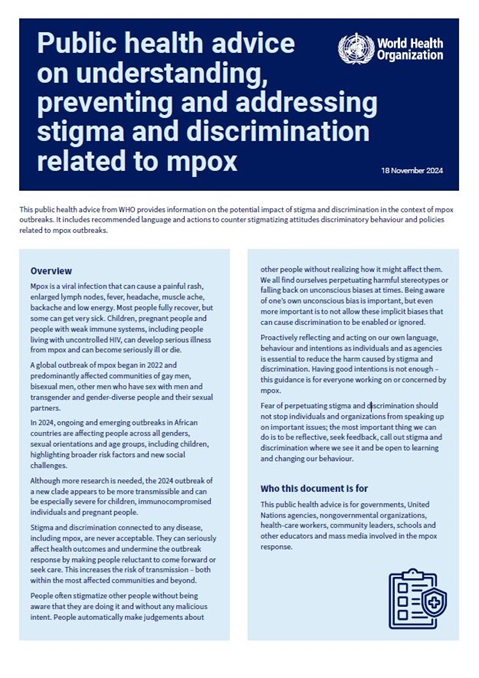Public health advice on understanding, preventing and addressing stigma and discrimination related to mpox

Overview
Stigma and discrimination connected to any disease, including mpox, are never acceptable. They can seriously affect health outcomes and undermine the outbreak response by making people reluctant to come forward or seek care. This increases the risk of transmission – both within the most affected communities and beyond.
People often stigmatize other people without being aware that they are doing it and without any malicious intent. People automatically make judgements about other people without realizing how it might affect them. We all find ourselves perpetuating harmful stereotypes or falling back on unconscious biases at times. Being aware of one’s own unconscious bias is important, but even more important is to not allow these implicit biases that can cause discrimination to be enabled or ignored.
Proactively reflecting and acting on our own language, behaviour and intentions as individuals and as agencies is essential to reduce the harm caused by stigma and discrimination. Having good intentions is not enough – this guidance is for everyone working on or concerned by mpox.
Fear of perpetuating stigma and discrimination should not stop individuals and organizations from speaking up on important issues; the most important thing we can do is to be reflective, seek feedback, call out stigma and discrimination where we see it and be open to learning and changing our behaviour.
This public health advice is for governments, United Nations agencies, nongovernmental organizations, health-care workers, community leaders, schools and other educators and mass media involved in the mpox response.
